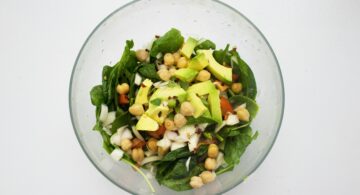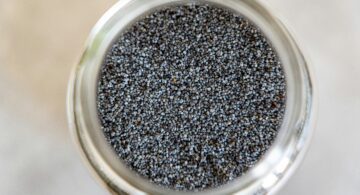15 Foods to Avoid While on Keto (and Their Better Alternatives)
If you’re planning to start a ketogenic diet, you might already know that you’ll need to eliminate processed grains and sugars, including favorites like pizza and muffins. However, other seemingly healthy foods may also have too many carbs for a strict keto plan. While these foods can offer vitamins, minerals, and fiber, they aren’t compatible with the low-carb requirements of keto.
Aiming for 20 to 50 grams of net carbohydrates per day is common for those on keto. Net carbs are calculated by subtracting fiber and sugar alcohols from total carbohydrates, which helps shift your body into ketosis. In this metabolic state, your body uses fat for energy instead of carbs. Following a keto diet often means reducing the intake of many fruits, whole grains, and certain vegetables.
It’s important to note that keto isn’t suitable for everyone. Individuals with high blood sugar, especially those who take insulin or have other chronic health conditions, should consult a healthcare professional before making significant dietary changes.
If you decide to give the keto diet a try, here are 15 foods you should steer clear of, along with healthier options:
1. Swap Croutons for Hemp Hearts on Salads
While croutons can add crunch, they contain almost 3 g of net carbs per 2 tablespoons. A better choice is hemp hearts, which offer less than 1 net carb per 2 tablespoons and are rich in healthy fats, protein, and essential nutrients.
2. Avoid Starchy Peas; Choose Broccoli Instead
Peas are a starchy vegetable with 12 g of net carbs per cup, making them less suitable for keto. Instead, opt for broccoli, which only has 3.7 g of net carbs per cup. Broccoli is also high in fiber, which can aid digestion and help prevent constipation.
3. Reconsider Low-Calorie Snacks; Go for Sunflower Seeds
Many low-calorie snacks like pretzels can be high in carbs. Instead, try sunflower seeds or pumpkin seeds, which are low in net carbs while providing healthy fats and protein, keeping you satiated longer.
4. Ditch Potato Chips; Try Homemade Seaweed Snacks
Potato chips can have around 14 g of net carbs per ounce, making them a poor choice. Instead, you can create seaweed snacks by mixing chopped nuts and seeds with vinegar and salt, rolling them in nori, and baking until crispy for a satisfying crunch.
5. Skip Bananas; Choose Berries for a Sweet Treat
A banana contains over 20 g of net carbs, which can exceed your daily limit. Instead, opt for berries like raspberries, which have only 1.7 g of net carbs per ¼ cup and are packed with fiber and antioxidants.
6. Say No to Honey-Baked Ham; Choose Sliced Deli Ham
Glazed ham often contains sugar and can have 7.3 g of net carbs per serving. A better alternative is traditional sliced deli ham, which generally has 0 g of carbs per slice. Just make sure to check for added sugars in the ingredients.
7. Avoid Margarine; Use Extra-Virgin Olive Oil Instead for a Ketogenic Diet
Many margarines contain unhealthy oils and trans fats, which aren’t good for your health. Instead, use extra-virgin olive oil, known for its heart-healthy monounsaturated fats that can reduce inflammation.
8. Skip Piña Coladas; Opt for Vodka Soda
Piña coladas are often loaded with sugar, averaging about 32 g of net carbs per drink. If you choose to drink, opt for a vodka soda, which has zero carbs, allowing you to enjoy a beverage without sacrificing your carb intake.
9. Limit Beer Consumption; Light Beer in Moderation May Be Okay
Light beers can still contain around 6 g of carbohydrates per 12 oz, so if you drink, you’ll need to adjust your carb allowance. Choose vegetables over beer to maintain your daily carb limits while gaining nutrients.
10. Forget About Sweet Potatoes; Embrace Cauliflower Instead
Sweet potatoes, while nutritious, contain about 20 g of carbs each. Instead, consider cauliflower, which can be mashed or used as rice, containing only 3.2 g of net carbs per cup, making it a versatile and healthier option.
11. Skip Cow’s Milk; Choose Almond Milk as an Alternative
Whole milk has around 11.3 g of net carbs per cup, which can hinder your keto goals. Almond milk, however, contains only about 1 net carb per cup and is a great base for smoothies or coffee without the added carbs.
12. Avoid Trail Mix; Opt for Plain or Salted Nuts on Keto
Many trail mixes contain dried fruits and candies that boost the carb count significantly. Instead, choose raw or salted nuts, which have a lower net carb count and are a great source of healthy fats and fiber.
13. Limit Carrots; Enjoy Bell Peppers Instead
A medium carrot has about 4.1 g of net carbs, which can quickly add up. In contrast, red bell peppers contain only 2.9 g of net carbs and provide vitamins and antioxidants, making them a flavorful and crunchy snack.
14. Steer Clear of Soda; Try Unsweetened Sparkling Water
Regular soda is packed with sugar, containing around 36.8 g of sugar per 12 oz can. Instead, opt for unsweetened sparkling water for a fizzy beverage that contains no carbs or sugar. You can even find naturally flavored options for a refreshing twist.
15. Avoid Butternut Squash; Use Keto Friendly Spaghetti Squash Instead
Butternut squash contains more than 15.3 g of net carbs per cup, making it unsuitable for keto. Spaghetti squash, on the other hand, has only 3.9 g of net carbs per ½ cup when cooked, making it a great low-carb alternative for pasta dishes.
By making these food swaps, you can better adhere to your keto diet while managing high blood sugar effectively.



















